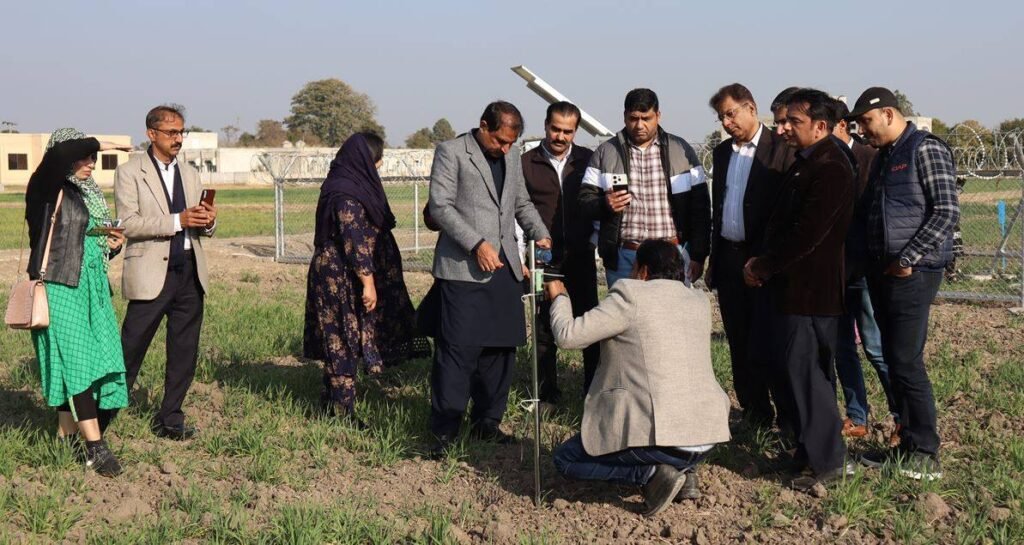The International Water Management Institute (IWMI) recently organized a capacity-building media exposure field visit to Chakwal, Punjab, aimed at educating journalists about innovative water management solutions.
Objective of the Visit
The primary goal of the visit was to highlight the significance, benefits, and positive impacts of IWMI’s interventions under the UK Aid-funded Water Resource Accountability in Pakistan (WRAP) Programme Component 1: Climate Resilient Solutions for Improving Water Governance (CRS-IWaG).
Briefing by IWMI Experts
Challenges in Water Resource Management
During the visit, Jehanzeb Masud Cheema, Deputy Country Representative of IWMI, provided insights into the pressing water issues in the drought-hit district. He emphasized that:
- The Barani region lacks access to canal water.
- The underground water table is approximately 300 meters deep.
- Agriculture in the region is rain-fed, with limited water resources for crops and livestock.
Technological Interventions for Efficient Water Use
Dr. Cheema introduced various interventions designed to improve water use efficiency, governance, and agricultural productivity, including:
- Automated Soil Moisture Sensors: These cost-effective and user-friendly devices help farmers determine the right time for irrigation. IWMI has installed over 20 sensors across Chakwal to assist farmers in optimizing water use.
- Conductivity, Temperature, and Depth (CTD) Sensors: Installed in collaboration with the Punjab Irrigation Department (PID) and Barani Agricultural Research Institute (BARI), these sensors provide critical data for water resource management.
Impact of Climate Change on Water Availability
Dr. Cheema highlighted the worsening drought situation in the Potohar region, attributing it to insufficient seasonal rainfall. Between September 1, 2024, and January 15, 2025, Punjab received 42% less rainfall than usual, exacerbating water scarcity.
Visit to Eddy Covariance (EC) Flux Tower
The media team also visited Pakistan’s fourth Eddy Covariance (EC) flux tower, installed at BARI, Chakwal. This state-of-the-art tower, part of research under the CGIAR Initiative on NEXUS Gains, collects real-time data on:
- Water usage
- Carbon emissions
- Energy fluxes from irrigated agricultural landscapes
IWMI has installed three additional flux towers in Okara, Faisalabad, and Rahim Yar Khan, enhancing environmental monitoring across different agricultural zones.
Insights from Local Officials
Representatives from BARI and other relevant departments provided further valuable insights into water governance, sustainable agricultural practices, and the role of data-driven solutions in ensuring water security.
Media Feedback and Conclusion
The participating journalists praised IWMI Pakistan’s initiatives, stating that the visit significantly enhanced their understanding of:
- The importance of water governance
- The role of technology-driven solutions in water security
- The impact of climate change on Pakistan’s water sector
This field visit reinforced the need for continued research and implementation of innovative water management strategies to safeguard Pakistan’s agricultural future.


